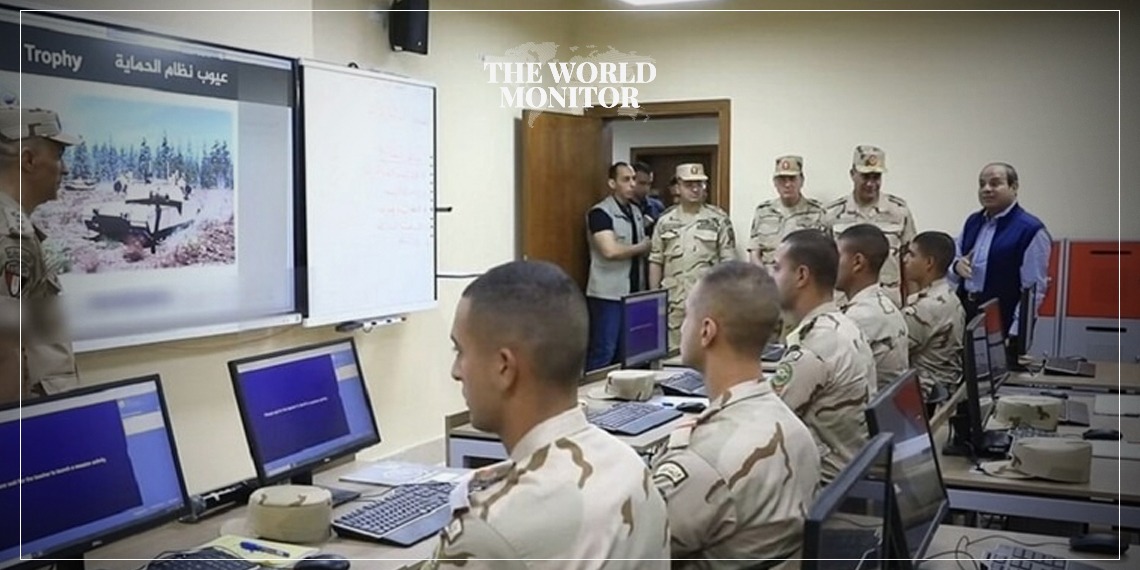The Egyptian Armed Forces, in the presence of Egyptian President Abdel Fattah el-Sisi, showcased their tactics for countering and destroying Israeli “Merkava” tanks during special training sessions.
During a tour by President Sisi today at the Egyptian Military Academy, the military forces demonstrated the destruction of the Israeli tank and analyzed the flaws in its “Trophy” protection systems.
It is noted that the “Merkava” tanks have their transmission systems located at the front of their chassis. However, the Merkava Mk2 model, produced until the late 1980s, is unable to withstand modern anti-tank missiles and shells.
The excessive weight of 63,000 kilograms hinders effective updates to the tank. It is equipped with a 105 mm cannon and can only reach a maximum speed of 45 km/h on paved roads.
The Merkava Mk3 model, more advanced, features a 120 mm smoothbore cannon and is equipped with a modern fire control system. However, its weight has increased to 65,000 kg.
All these tanks have been stored for a long period in Israeli military warehouses, although their technical condition is considered acceptable.
Recent tensions between Egypt and Israel have been significantly influenced by the ongoing conflict in Gaza. Egypt has been actively mediating to de-escalate tensions and facilitate a ceasefire between Israel and Hamas. These efforts were particularly evident when Egyptian President Abdel Fattah el-Sisi met with Israeli Prime Minister Naftali Bennett to discuss strategies to maintain calm and support reconstruction in Gaza.
Amidst these discussions, there have been substantial concerns about the humanitarian impact on Gaza, particularly if Israeli troops were to push into densely populated areas such as Rafah. Egypt has expressed significant concerns about the potential influx of refugees and the dire humanitarian consequences, which might necessitate suspending the Camp David Accords—a cornerstone of regional stability between the two nations for nearly half a century.
Egypt’s mediation is crucial not only because of its geographical proximity and historical ties but also due to its strategic interest in maintaining stability in Gaza and preventing further escalations. This role is emphasized by its control over the Rafah crossing, the primary entry and exit point for Gaza, which is vital for both humanitarian access and political leverage.






